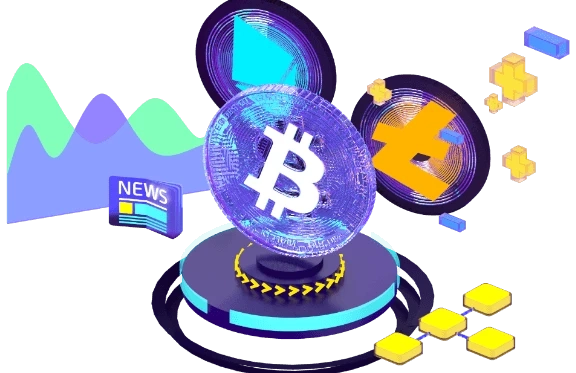Blockchain technology is rapidly transforming the gaming industry. With play-to-earn (P2E) and NFT integration becoming mainstream, developers are seeking powerful tools and SDKs (Software Development Kits) to build immersive and decentralized gaming experiences.
In this article, we’ll explore the top tools and SDKs for blockchain game development in 2025, categorized by purpose—making it easy for developers, startups, and gaming studios to choose the right tech stack for their Web3 gaming projects.
Why Use Blockchain Game Development Tools & SDKs?
Building a blockchain game isn’t just about gameplay—it's about integrating smart contracts, NFTs, wallets, and decentralized economies. The right tools help you:
- Reduce development time
- Ensure security and scalability
- Easily integrate wallets and marketplaces
- Deploy to popular blockchains like Ethereum, Polygon, Solana, and others
- Enhance the player experience with seamless blockchain interaction
Top Tools & SDKs for Blockchain Game Development
1. Unity Web3 SDK (by Thirdweb)
Best for: Unity-based blockchain game development
Supported Chains: Ethereum, Polygon, Avalanche, Optimism, Arbitrum
Key Features:
- Drag-and-drop wallet integration
- Support for NFT minting and interaction
- Pre-built smart contracts
- Easy deployment to multiple blockchains
2. Moralis
Best for: Backend infrastructure and real-time blockchain data
Supported Chains: Ethereum, BNB Chain, Polygon, Solana, Aptos, and more
Key Features:
- One-click authentication with MetaMask, WalletConnect
- NFT and token data APIs
- Cross-chain support
- Powerful Web3 database and real-time alerts
3. ChainSafe Gaming SDK (formerly Web3Unity)
Best for: Unity-based games with cross-platform blockchain integration
Supported Chains: Ethereum, Polygon, BNB Chain
Key Features:
- Unity integration for NFTs and tokens
- Simple wallet connection in-game
- SDK actively maintained by ChainSafe, a leading Web3 dev firm
4. Alchemy
Best for: Blockchain infrastructure and APIs
Supported Chains: Ethereum, Polygon, Arbitrum, Optimism, Solana
Key Features:
- Web3 APIs for NFT data, tokens, wallets
- Enhanced reliability and scalability
- Advanced dashboards for monitoring
5. Phaser + Colyseus + NFT.Storage
Best for: 2D browser-based blockchain games
Tech Stack:
- Phaser: 2D game engine
- Colyseus: Multiplayer game server
- NFT.Storage: IPFS storage for NFTs
Highlights:
- Great for lightweight, fast Web3 games
- Can run entirely on the browser with wallet connectivity
- NFT metadata can be stored on decentralized storage
6. Flow SDK (by Dapper Labs)
Best for: Games requiring fast and scalable transactions (e.g., sports NFTs)
Supported Chains: Flow Blockchain
Key Features:
- Designed for consumer-friendly Web3 apps
- Cadence smart contract language
- Powerful NFT standards and wallet support
7. Enjin SDK
Best for: NFT creation, in-game economies, and item interoperability
Supported Chains: Enjin Blockchain, Ethereum (via JumpNet)
Key Features:
- NFT minting and marketplace integration
- Enjin wallet support
- Game item interoperability between multiple games
8. Solana Game SDKs (Solana Unity SDK, Phantom Wallet SDK)
Best for: High-speed blockchain games
Supported Chain: Solana
Key Features:
- Low-cost and fast transactions
- Ideal for real-time games and mobile apps
- Phantom wallet integration for Unity
Choosing the Right SDK for Your Blockchain Game
Selecting the right tools depends largely on the type of game you're developing and your technical goals.
If you're building a 3D game in Unity, SDKs like Thirdweb and ChainSafe Gaming SDK are excellent choices. They offer seamless wallet integration, NFT support, and blockchain connectivity directly within the Unity environment.
For developers looking to manage the backend of their game, access real-time blockchain data, and handle authentication or database operations, Moralis and Alchemy provide robust infrastructure support with scalable Web3 APIs.
If your focus is on NFT integration, especially for minting, trading, or showcasing digital assets, then Enjin and Thirdweb stand out. They offer developer-friendly tools for creating and managing NFTs with built-in marketplace features.
Developers working on multiplayer 2D browser-based games can opt for a lightweight stack using Phaser for the front end, Colyseus for real-time multiplayer functionality, and NFT.Storage or IPFS for decentralized asset storage.
For those building high-speed or mobile-first games where low latency and cost efficiency are key, SDKs for Solana or Flow are ideal. These blockchains are designed for scalability, making them suitable for real-time gaming experiences.
By aligning your game type with the right SDK or toolset, you can speed up development, improve performance, and deliver a seamless blockchain gaming experience.
Conclusion
Blockchain game development is evolving fast, and so are the tools and SDKs supporting it. Whether you're building a fully immersive 3D metaverse game or a simple card trading NFT game, the right SDK can significantly improve your time-to-market and user experience.
FAQs
Q1: Can I build a blockchain game without coding?
Ans: Yes, platforms like Thirdweb offer no-code tools for smart contract deployment, but for full games, basic development knowledge is needed.
Q2: Which is the best engine for blockchain game development?
Ans: Unity is the most popular due to Web3 SDK support and cross-platform compatibility.
Q3: Are blockchain games profitable?
Ans: Yes. With proper tokenomics, user engagement, and monetization strategies like NFTs and P2E, blockchain games can be highly profitable.



